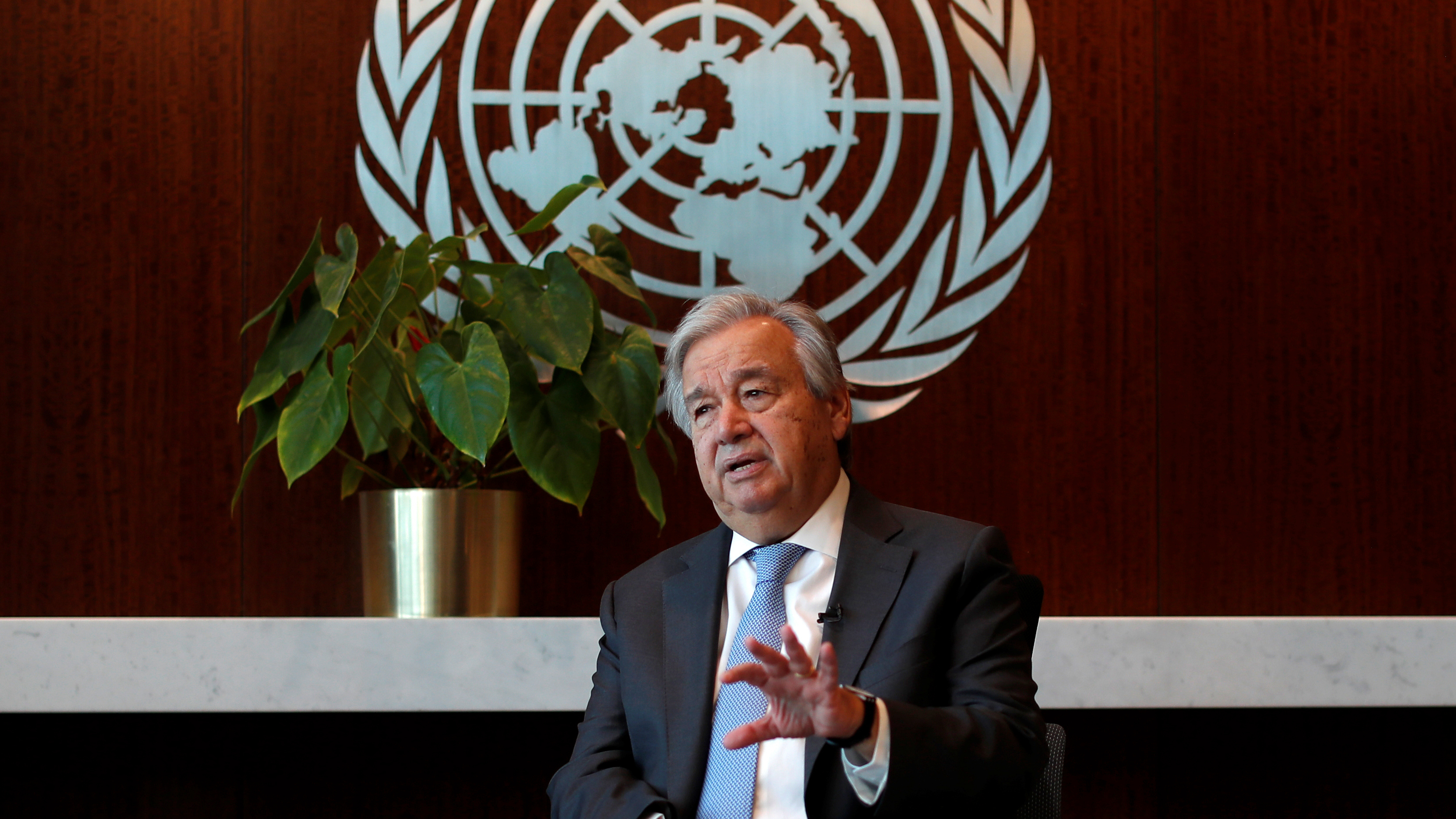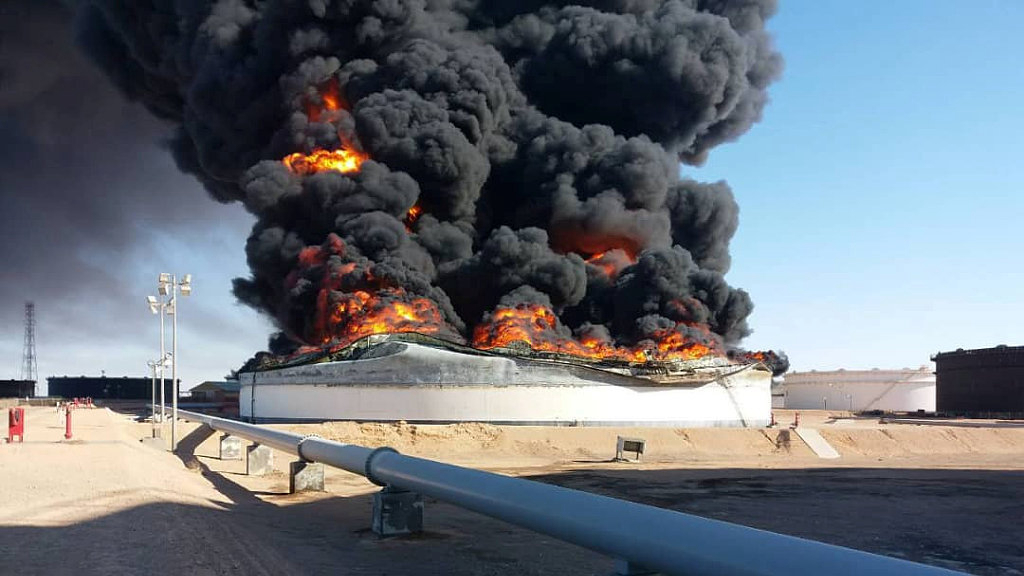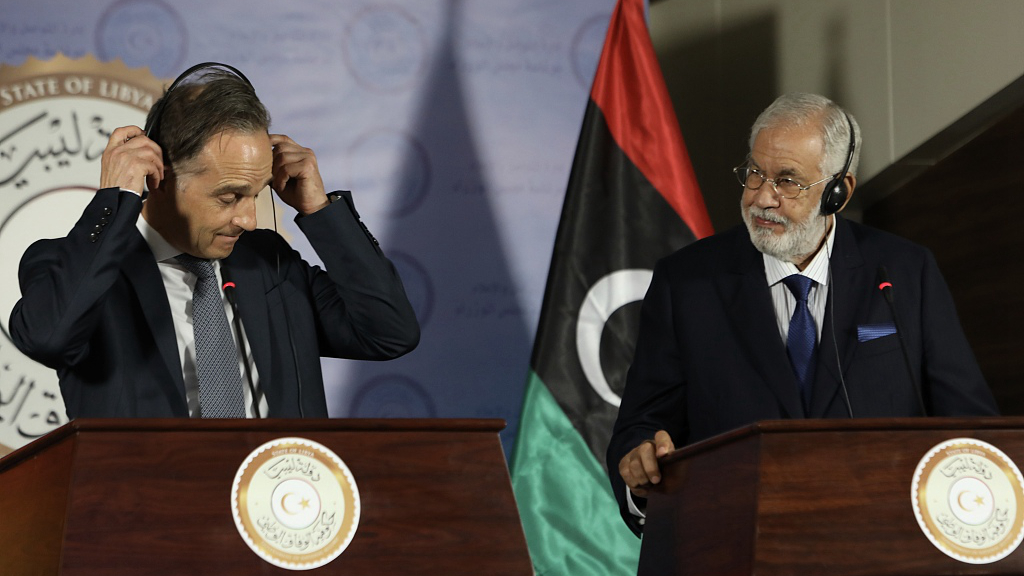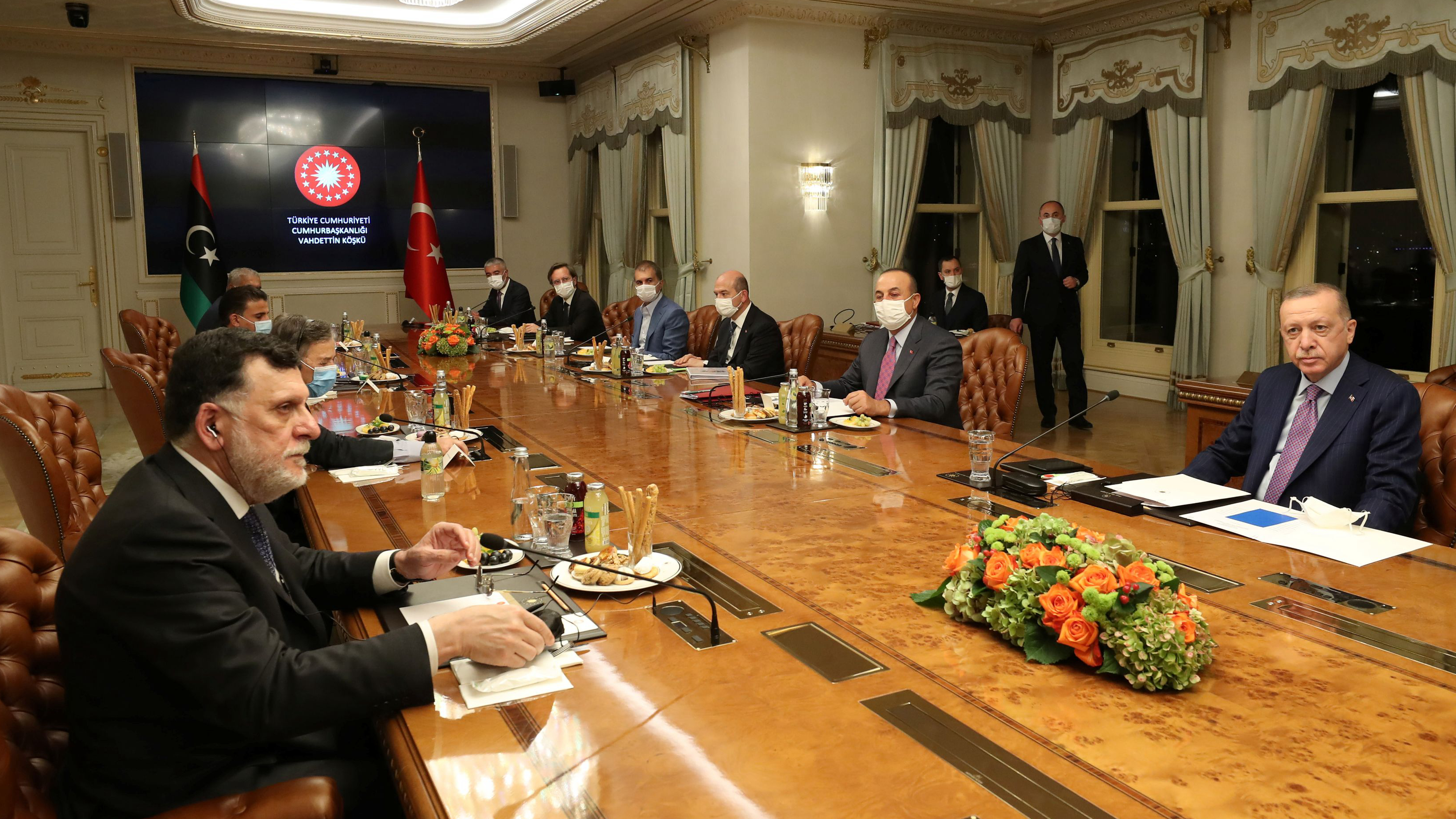"Libya's future is at stake," the UN secretary-general said on Monday as he called on all Libyans to continue to work toward a lasting ceasefire at a summit held on the sidelines of the 75th UN General Assembly and co-hosted with Germany.
"Recent developments represent a rare opportunity to make real progress in the search for peace and stability in Libya. We must seize it," Secretary-General Antonio Guterres told the high-level meeting on Libya, adding that the commitments made at the Berlin Conference on Libya in January must be upheld and implemented.

UN Secretary-General Antonio Guterres speaks at U.N. headquarters in New York, September 14, 2020. /Reuters
UN Secretary-General Antonio Guterres speaks at U.N. headquarters in New York, September 14, 2020. /Reuters
Guterres stressed the importance of full and unconditional implementation of the Security Council arms embargo and demanded an immediate stop to the foreign deliveries of weapons and other military support. He asked for joint efforts to restore Libya's ability to provide basic services and security to its population, whose living conditions have continuously deteriorated, not only as a result of the conflict but also due to poor governance and rampant corruption.
The blockade on the country's oil production and exports, which has had a crippling impact on the economy, should be lifted "immediately, permanently and unconditionally," Guterres added.

Smoke and flames rise from an oil storage tank that was set on fire amid fighting between rival factions at Ras Lanuf terminal, Libya. The file photo was released on June 18, 2018. /VCG
Smoke and flames rise from an oil storage tank that was set on fire amid fighting between rival factions at Ras Lanuf terminal, Libya. The file photo was released on June 18, 2018. /VCG
'Cautious optimism' over efforts to end the conflict
Germany voiced "cautious optimism" that the conflict in Libya could be resolved, after international talks aimed at seeking long elusive peace for the war-torn country.
"There is reason for cautious optimism – we see increasingly signs of a switch from a militaristic to a political logic," German Foreign Minister Heiko Maas said after co-chairing the UN talks, said an interim government could be in place in ''weeks rather than months."

Germany's top diplomat Heiko Maas and Libya's GNA Foreign Minister Mohamad Taher Siala attend a press conference in Tripoli, Libya on August 17, 2020. /VCG
Germany's top diplomat Heiko Maas and Libya's GNA Foreign Minister Mohamad Taher Siala attend a press conference in Tripoli, Libya on August 17, 2020. /VCG
"It is difficult to say when that is going to happen. But we do think that there is a window now in which many things are possible that were not possible before. And we need to take advantage of this," Maas said.
Despite some progress, he said munitions were still making their way to the warring parties and called for all actors to adhere to commitments made at the Berlin Conference. Germany has been a vocal critic of Turkey, Russia and the UAE in recent weeks regarding accusations they have reneged against the weapons embargo to Libya. Maas has previously stated that Germany and the EU should follow a harder course towards countries ignoring the embargo.
Turkey backs the UN-recognized government in Tripoli, the Government of National Accord (GNA), providing military support following an April 2019 offensive on Tripoli by rival strongman Khalifa Haftar, who has attained support from Egypt, Saudi Arabia, the United Arab Emirates and Russia.

Turkish President Tayyip Erdogan meets Libya's Prime Minister Fayez al-Sarraj in Istanbul, Turkey, October 4, 2020. /Reuters
Turkish President Tayyip Erdogan meets Libya's Prime Minister Fayez al-Sarraj in Istanbul, Turkey, October 4, 2020. /Reuters
After a meeting with the head of the Tripoli-based government, Prime Minister Fayez al-Sarraj, on Sunday in Istanbul, Turkish President Tayyip Erdogan said Turkey aims to strengthen relations with Libya's internationally-recognized GNA.
The two sides signed a military cooperation deal last year that turned the tide in the GNA's favor in a conflict against eastern Libyan forces under Haftar's Libyan National Army (LNA). The Ankara-Tripoli military deal was signed alongside a maritime demarcation agreement that emboldened Turkey to ramp up hydrocarbon exploration in the Eastern Mediterranean, prompting an ongoing clash with Greece and Cyprus over territorial rights.
The Tripoli-based government and a parliament in the eastern city of Tobruk linked to Haftar agreed in August on a ceasefire and elections by March. Prime Minister Fayez al-Sarraj last month announced plans to step down within six weeks as part of efforts to broker a peace agreement. Erdogan said he was upset by his ally's decision.
(With input from agencies)